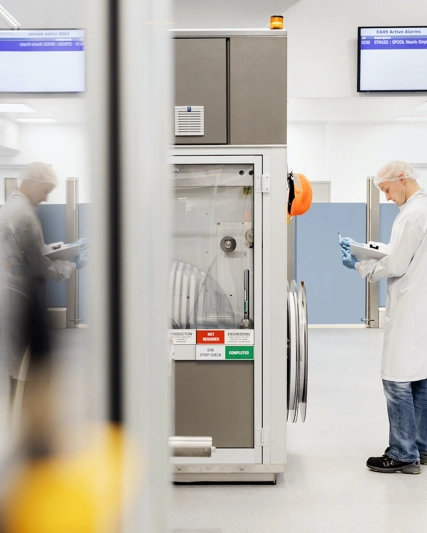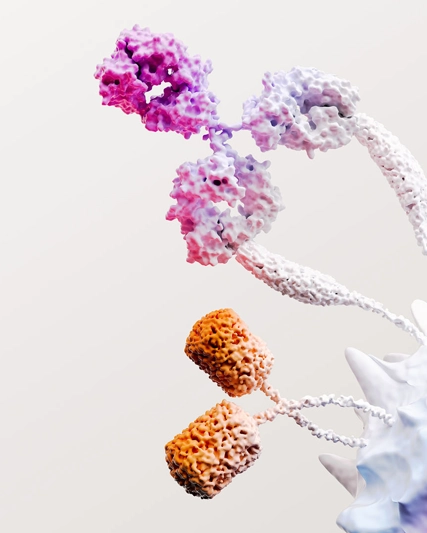Issued: London, UK
For media and investors only
GSK to acquire efimosfermin, a phase III-ready potential best-in-class specialty medicine to treat and prevent progression of steatotic liver disease (SLD)
- Affecting up to 5% of the global population, SLD represents an area of significant unmet medical need with limited treatment options
- Phase II data show potential of efimosfermin to reverse liver fibrosis, demonstrated in metabolic dysfunction-associated steatohepatitis (a form of SLD)
- Unique properties offer potential for efimosfermin to be a new standard-of-care
- Significantly expands GSK’s hepatology pipeline aimed at addressing steatotic and viral drivers of liver disease, offering multiple development options and potential first launch in 2029
GSK plc (LSE/NYSE: GSK) and Boston Pharmaceuticals, a leading clinical stage biopharmaceutical company developing highly targeted therapies for patients with serious liver diseases, today announced that they have entered into an agreement under which GSK will acquire Boston Pharmaceuticals’ lead asset, efimosfermin alfa. Efimosfermin is a phase III-ready, potential best-in-class, investigational specialty medicine to treat and prevent progression of steatotic liver disease (SLD). Under the agreement, GSK will pay $1.2 billion upfront, with potential for additional success-based milestone payments totalling $800 million.
Efimosfermin is a novel, once-monthly fibroblast growth factor 21 (FGF21) analog therapeutic in clinical development for the treatment of metabolic dysfunction-associated steatohepatitis (MASH), including cirrhosis, and future development in alcohol-related liver disease (ALD), both forms of SLD. Given efimosfermin’s direct antifibrotic mechanism of action and GSK’s data-driven insights from work in human genetics and disease phenotyping, it has potential to address more advanced stages of SLD and opportunity in combination with GSK’990, a siRNA therapeutic in development for other subsets of patients with SLD.
The acquisition of efimosfermin is highly aligned to GSK’s R&D focus on science related to the immune system and is further evidence of the company’s intent to build on its deep understanding of fibrosis and auto-inflammation to develop precision interventions that stop and reverse disease progression.
SLD represents an area of significant unmet medical need affecting approximately 5% of the global population with limited therapeutic options for patients.1 SLD, including MASH and ALD, is characterised by the accumulation of fat in the liver (steatosis), with associated inflammation and fibrosis. ALD affects about 26 million patients globally, and together with MASH, is the leading cause of liver transplant in the US, representing a significant burden and cost on healthcare utilisation.1,3 Substantial and disproportionate costs are associated with end-stage liver disease. Interventions that reduce moderate-to-advanced fibrosis to prevent progression of cirrhosis, liver cancer, hospitalisations and transplant could save the US healthcare system between $40 - 100 billion over the next two decades.4
Recent data from a phase II trial of efimosfermin, designed to assess the efficacy and safety of a monthly subcutaneous dose in participants with biopsy-confirmed moderate-to-advanced (F2 or F3) MASH, showed that efimosfermin rapidly and significantly reversed liver fibrosis and stopped its progression, with a manageable tolerability profile. These data suggest potentially greater fibrosis improvement compared to that seen with other therapeutic approaches and with benefit expected independent of background glucagon-like peptide-1 (GLP-1) therapy. In addition, efimosfermin could offer triglyceride reduction and improved glycaemic control, important considerations for MASH patients who frequently face cardiometabolic co-morbidities. Efimosfermin’s unique properties, including low immunogenicity and an extended half-life, also offer the potential for a monthly dosing regimen and improved patient convenience. Full data from the trial was presented at the American Association for the Study of Liver Diseases (AASLD) Meeting in November 2024.5
Tony Wood, Chief Scientific Officer, GSK said: “The FGF21 class has shown some of the most exciting data in MASH including first-in-disease evidence of cirrhosis reversal, and efimosfermin has the potential to define a new standard-of-care with its monthly dosing and tolerability profile. Efimosfermin will significantly expand our hepatology pipeline and provide us the opportunity to develop a new potential best-in-class medicine with first launch expected in 2029. It complements GSK‘990, also in development for ALD and MASH, offering GSK options to develop both monotherapy and potential combinations to improve patient outcomes.”
Elias Zerhouni MD, Chair of the Board, Boston Pharmaceuticals, said: “I am very proud of today’s agreement with GSK, a company I know and admire with proven expertise in liver disease, and the outstanding work of the Boston Pharmaceuticals team. This would not have been possible without the impressive, sustained and long-term strategic commitment to leading science and biotechnology ventures from the Bertarelli family, and the expertise of Ernesto Bertarelli, which led to the development of efimosfermin as a potential best-in-class therapy. We are delighted that GSK, a global leader, recognised efimosfermin’s potential to address a growing global public health concern and unmet medical need. Together, we look forward to efimosfermin’s ongoing journey to become a best-in-class treatment for patients with SLD.”
The addition of efimosfermin further strengthens GSK’s hepatology pipeline of specialty medicines aimed at addressing both viral (chronic hepatitis B) and steatotic (SLD) drivers of fibrotic liver diseases.
Financial considerations
Under the terms of the agreement, GSK will acquire BP Asset IX, Inc., a subsidiary of Boston Pharmaceuticals, to access efimosfermin. GSK will pay up to $2 billion of total cash consideration, comprising an upfront payment of $1.2 billion and up to $800 million in success-based milestone payments. GSK will also be responsible for success-based milestone payments as well as tiered royalties for efimosfermin owed to Novartis Pharma AG.
GSK will account for the transaction as a business combination. This transaction is subject to customary conditions, including applicable regulatory agency clearances under the Hart-Scott-Rodino Act in the US.
For GSK, Evercore Partners International LLP is acting as exclusive financial advisor and Cleary Gottlieb Steen & Hamilton LLP as legal counsel.
For Boston Pharmaceuticals, Centerview Partners LLC is acting as exclusive financial advisor and Sullivan & Cromwell LLP as legal counsel.
About efimosfermin alfa
Efimosfermin is an investigational, once-monthly subcutaneous injection of a long-acting variant of FGF21 that is designed to regulate key metabolic pathways to decrease liver fat, ameliorate liver inflammation, and reverse liver fibrosis in patients with MASH. Efimosfermin is currently in trials for moderate to advanced fibrosis, including cirrhosis and is not available for prescription anywhere in the world.
About Boston Pharmaceuticals
Boston Pharmaceuticals is a clinical-stage biopharmaceutical company that leverages an experienced and committed drug development team to advance a portfolio of highly differentiated therapies that may address important unmet medical needs in serious liver diseases. Boston Pharmaceuticals is a portfolio company of B-Flexion, a private, entrepreneurial investment firm which manages the combined funds and investments associated with the Bertarelli family and also partners with sophisticated capital to meet the shared goal of delivering exceptional value over the generations, while also contributing positively to society.
About GSK
GSK is a global biopharma company with a purpose to unite science, technology, and talent to get ahead of disease together. Find out more at gsk.com.
Cautionary statement regarding forward-looking statements
GSK cautions investors that any forward-looking statements or projections made by GSK, including those made in this announcement, are subject to risks and uncertainties that may cause actual results to differ materially from those projected. Such factors include, but are not limited to, those described in the “Risk Factors” section in GSK’s Annual Report on Form 20-F for 2024, and GSK’s Q1 Results for 2025.
References
- Global Burden of Disease Study 2017 Cirrhosis collaborators. 2020
- Allen et al. Postgraduate Medicine. 2024, Vol 136, No. 3, 229–245.
- Younossi et al. Hepatol Commun. 2023 Dec 22;8(1):e0352
- Wallace, Carolyn et al. Journal of Hepatology, Volume 0, Issue 0
- Hepatology (2004) Late-Breaking Abstract Supplement p28-30 TLM2024LBA_20241115A.pdf


